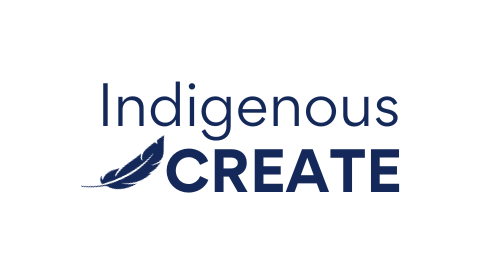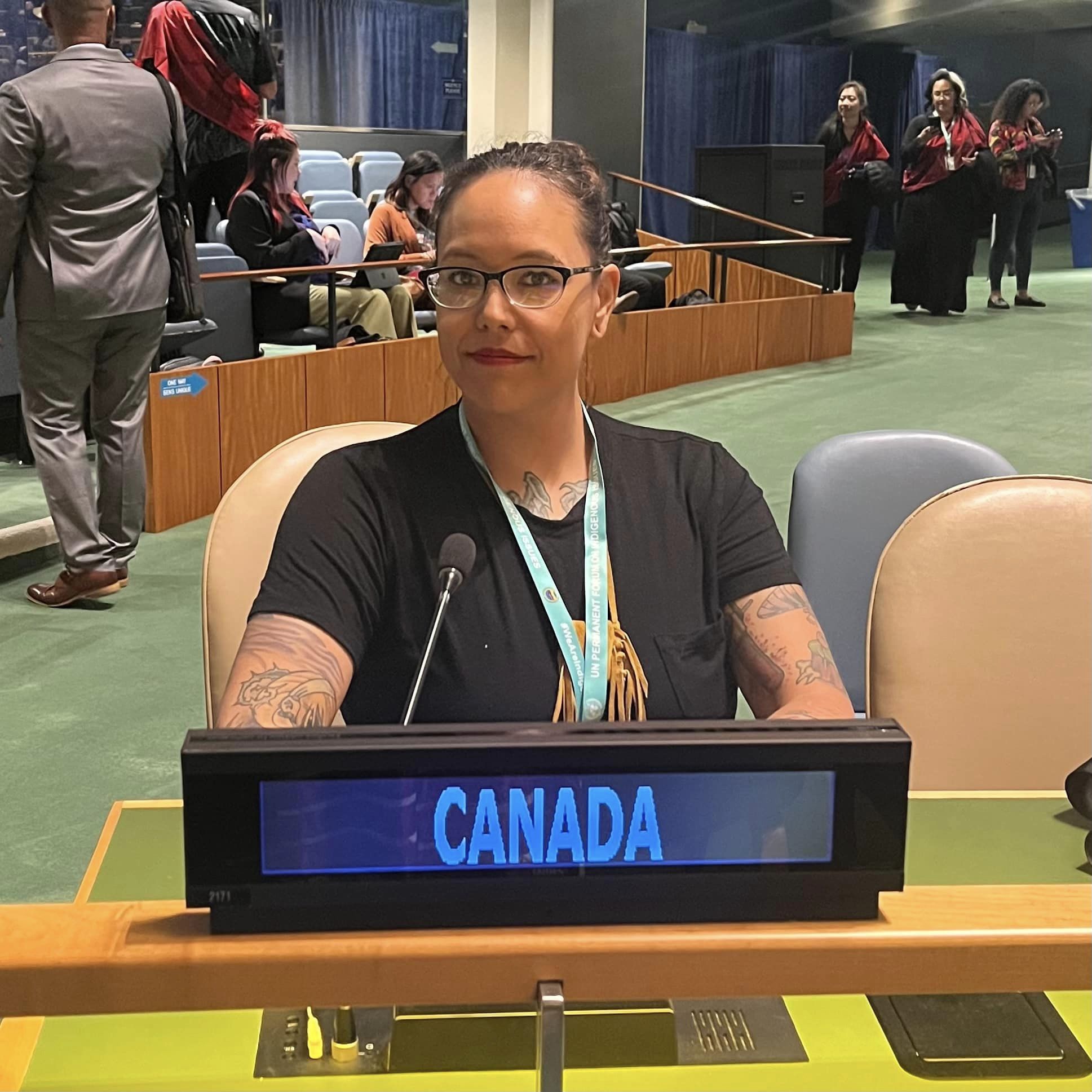
Research Topic/ Title: Protecting First Nations Connection to Wildlife Through Storytelling & Oral Tradition
As First Nations people, we have lived interconnectedly with our animal relatives for millennia, however, through colonization that connection has been impacted, as well as some of our hunting, trapping, and fishing rights due to pollution, industry, and climate change. In order to indigenize and decolonize the wildlife sector in Manitoba, we must include Indigenous knowledge and science to protect wildlife biodiversity in the province.
My research explores the connection we as First Nations people have with our four-legged, finned, and winged relatives, and how traditional knowledge, oral traditions, and storytelling helped us maintain that connection before and after colonization. I will also briefly touch on the challenges we face such as environmental racism, loss of TEK, and assimilation and how that has impacted our ways of knowing and understanding towards wildlife.
Overall, my research will emphasize the value of our practices and knowledge systems, advocate for wildlife conservation, and promote the importance of keeping our traditions alive.
Outside of student life, I love to plan events. I love bringing people together to celebrate life, love, achievements, culture, etc.. I also love to sing! I’ve been singing since I was a young girl and feel comfortable on a stage.
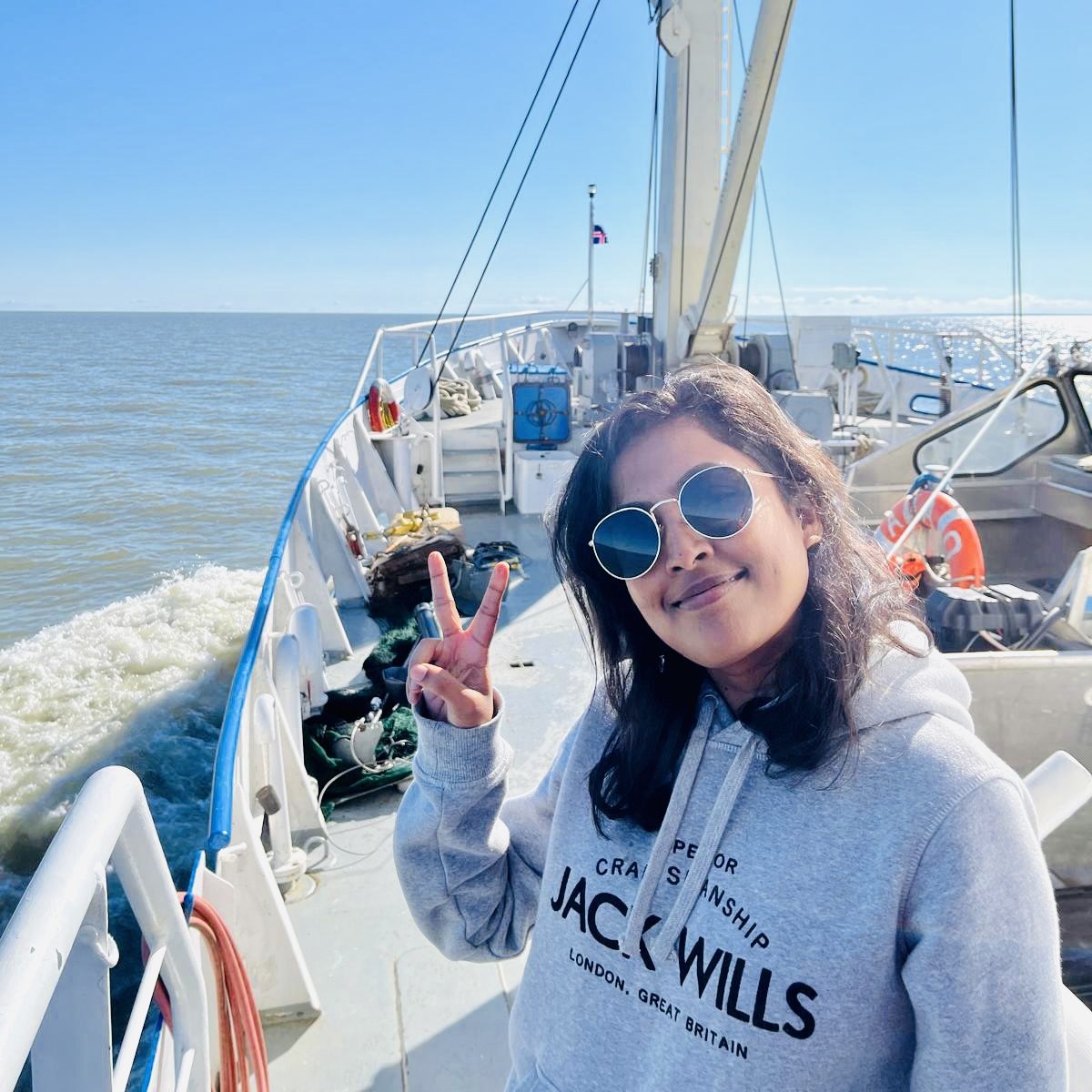
Research Topic/ Title: Analysis of Microcystin producing genotypes in Split Lake and Brokenhead rivers
Microcystins (MCs) are toxins commonly found in freshwater, produced by various types of cyanobacteria. The World Health Organization (WHO) advises that MC levels in drinking water should not exceed 1.0 μg per liter. According to the Government of Canada’s latest data, 27 communities are under boiling water advisories. Boil water advisories issued by federal or provincial health authorities for First Nation community water systems are 2.5 times more frequent than for non-First Nation communities. Approximately 30% of First Nation community water systems are classified as high-risk systems.
As part of this project, I will be collecting water samples from Split Lake and Brokenhead River, which are the territories of the Tataskweyak Cree Nation (TCN) and Brokenhead Ojibway Nation communities respectively. I aim to determine the correlations between the environmental factors and these toxic algal blooms. Moreover, I will be carrying out a metagenomic analysis to identify the toxin-producing cyanobacterial species and determining the toxin concentrations in the river to assess the existing water quality. I hope this project will increase awareness among First Nation communities about toxin producing algal blooms in their water resources, promote public health, and support access to safer drinking water for everybody.
I secretly dream of exploring the mysteries of the universe by going to space one day!
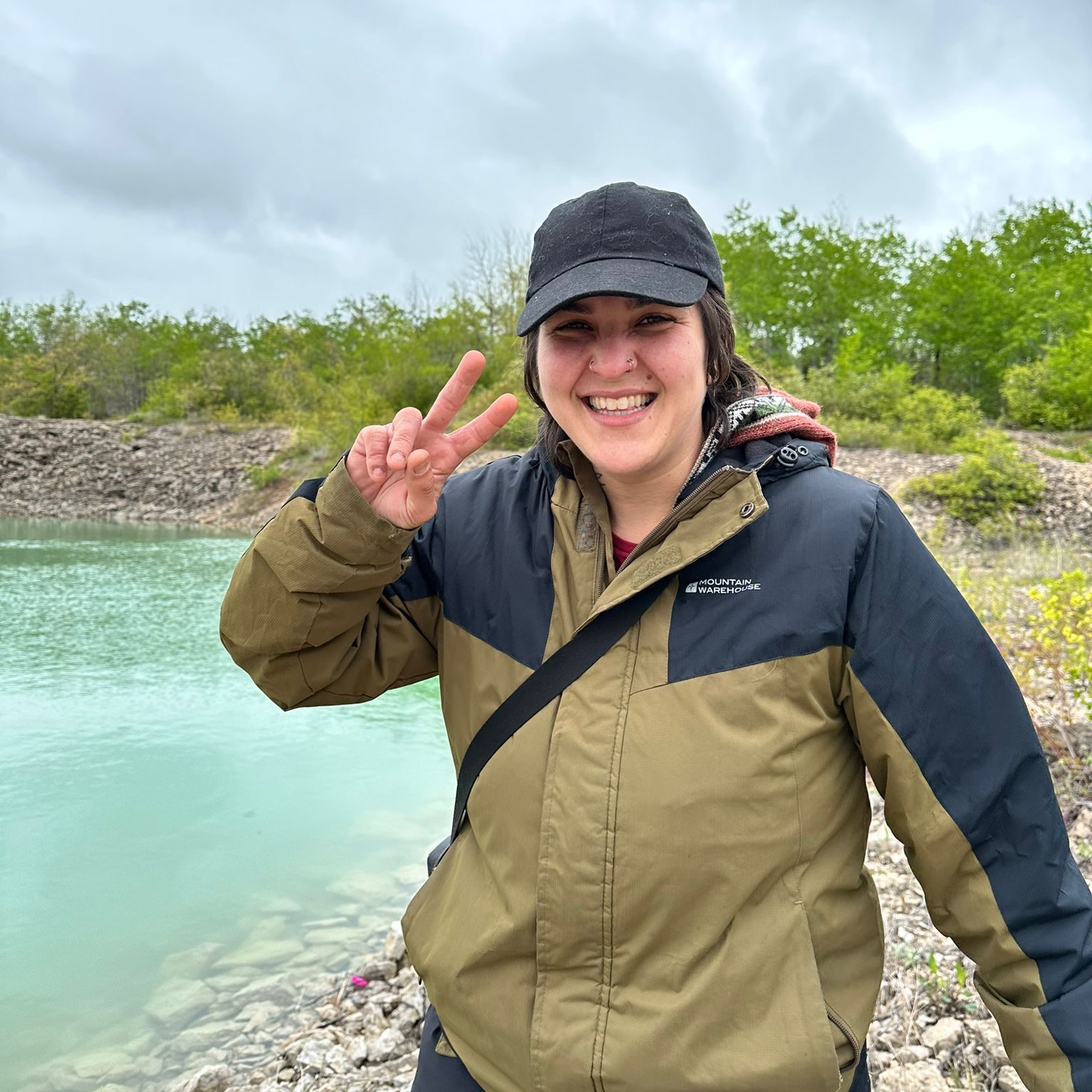
Research Topic/ Title: Participatory methodologies and social technology development projects in Engineering Education
This research aims to develop engineering capstone projects for, by and with the Indigenous-led organization One House Many Nations (OHMN). OHMN was born from the Idle No More movement that fights for Indigenous sovereignty in Turtle Island. The organization works to raise awareness about housing conditions and pressures governments to live up to their Treaty, moral, and legal responsibilities, in addition to providing homes for youth on reserves. Through this research, I am building relationships with local actors at Big River First Nation (SK) and Opaskwayak Cree Nation (MB) to collectively understand their technological needs and build a local diagnosis that will provide us with project themes. These projects will be developed as engineering capstone projects through social technology and participatory action research methodologies, and they will respectfully follow the nêhiyaw protocol.
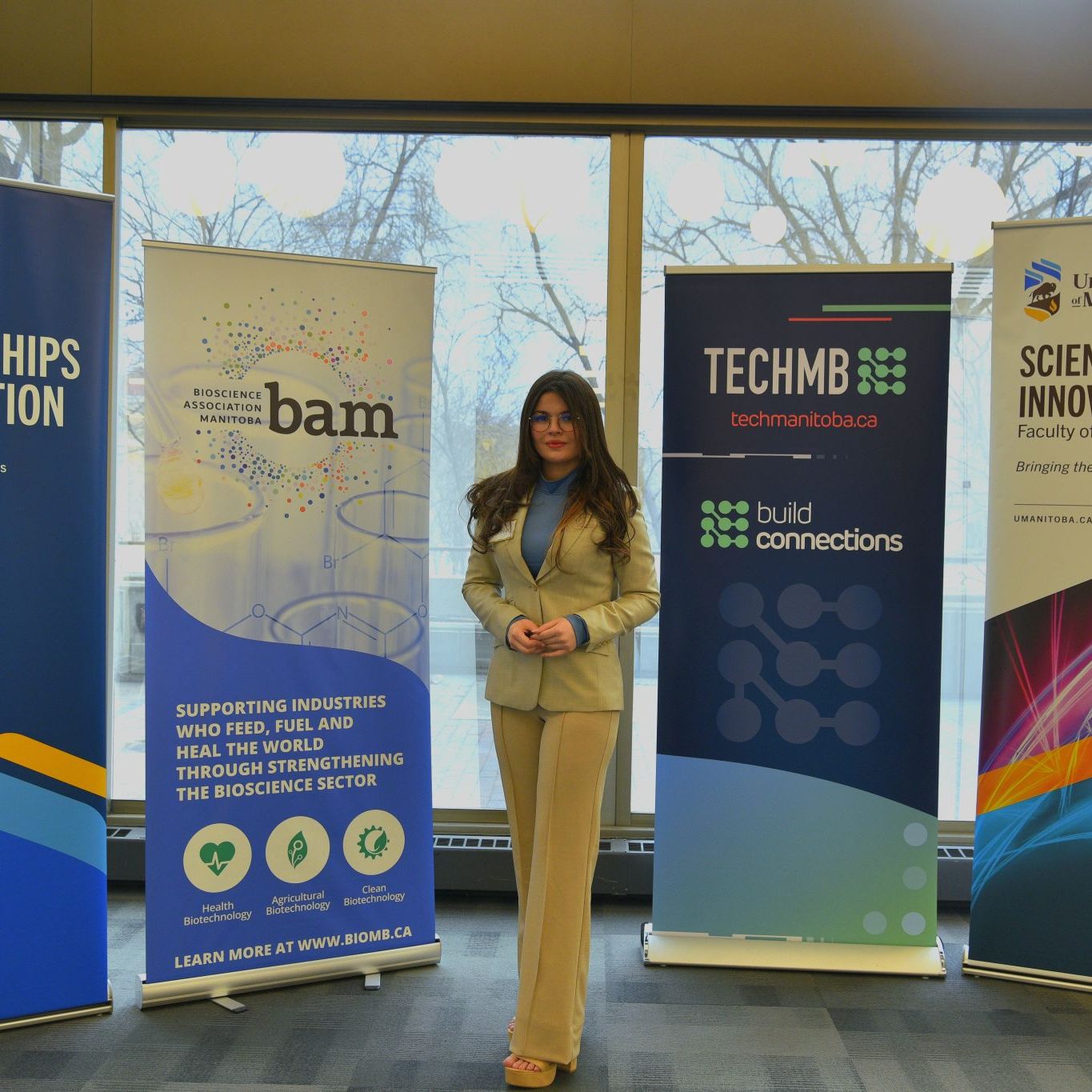
Research Topic/ Title: Deep amplicon sequencing for monitoring impacted watersheds in rural Manitoba
In my research, we are trying to identify the potential microbiological contaminants that can influence water quality in the rural section of the Assiniboine River located near some First Nation communities in rural Manitoba. Using this section of the Assiniboine River, we aim to evaluate how different land uses (e.g. agricultural and urban activities in comparison with less influenced areas) impact the array of microbes in surface water.
We are trying to set a baseline to establish new microbiological indicators of water contamination. We also hope to encourage the prevention of water contamination, advocate for the health of the community, and protect their source and recreational waters. We would like to contribute to maintaining freshwater quality in Canada that is safe for the overall health of the aquatic ecosystems, its inhabitants, and the Indigenous communities involved (who have decided to remain anonymous due to a confidentiality agreement).
Outside of school, I really love cows and I enjoy watching soccer. I hope to live close to cows one day and I am hoping to go to the next World Cup!
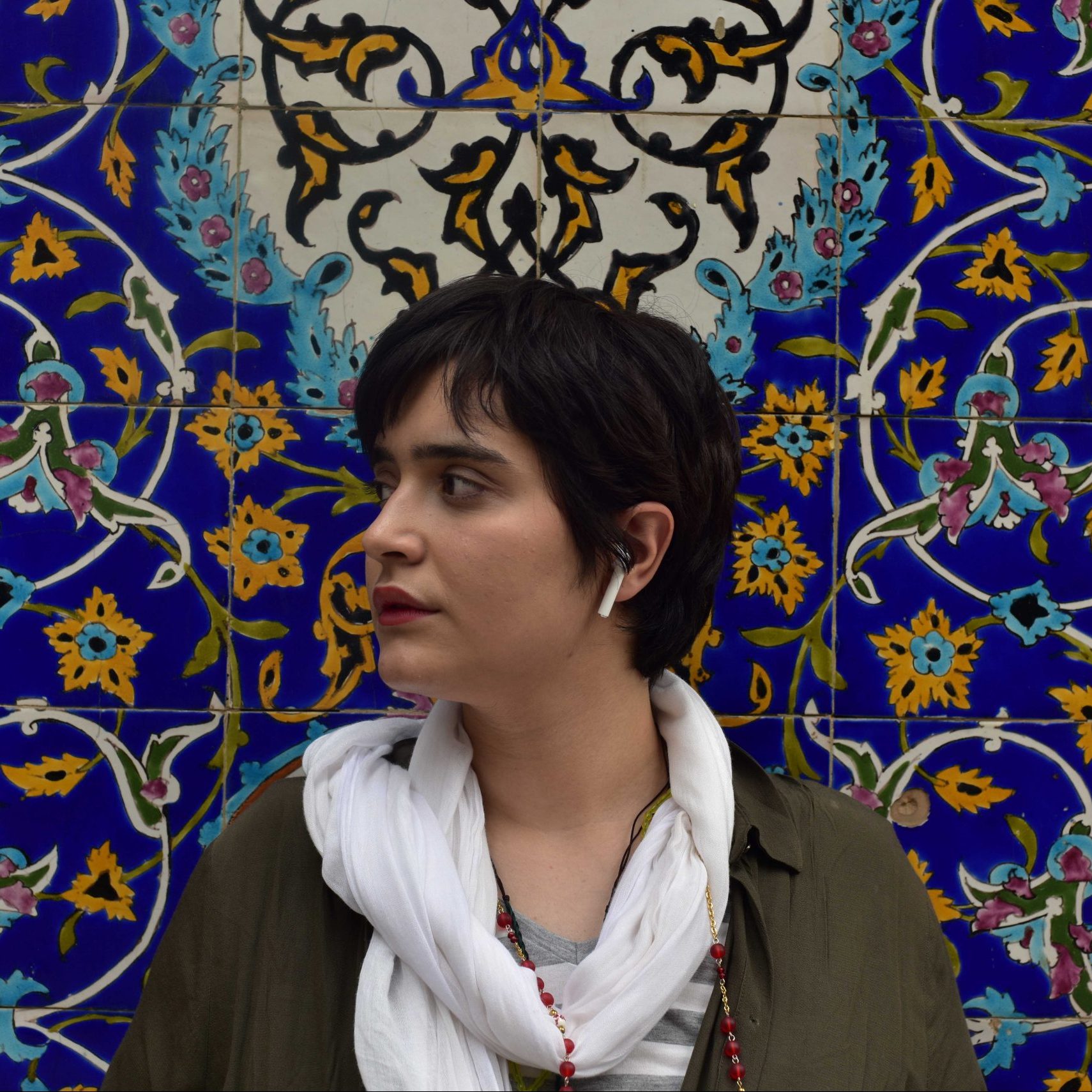
Research Topic/ Title: Revitalizing Traditional Knowledge: The Role of Land-Based Healing in Mitigating the Impacts of Hydroelectric Development on Indigenous Well-Being
My research focuses on the cumulative environmental and socio-cultural impacts of hydroelectric development on Indigenous communities in Northern Manitoba, specifically targeting traditional land based healing mechanisms and Indigenous knowledge systems related to traditional-use plants and medicines.
This study aims to uncover how such developments have disrupted the traditional ways of life and wellbeing of these communities. I intend to work closely with the Misipawistik Cree Nation (Grand Rapids) and the Tataskweyak Cree Nation (Split Lake) to conduct comprehensive case studies and comparative analyses. By employing a community-based participatory approach, I ensure that Indigenous communities are active collaborators throughout the research process. Methodologies will include interviews, focus groups, and participatory mapping, working alongside Indigenous knowledge keepers to gather qualitative data and map traditional land-use areas, documenting changes due to hydroelectric development.
This research holds deep personal significance for me as an Azari woman from Iran with a profound connection to traditional healing practices and plant-based medicines, which have shaped my worldview and approach to well-being. My background instills a deep respect for the wisdom and resilience of Indigenous communities, and I am committed to preserving and revitalizing traditional knowledge systems.
Through this research, I aim to highlight and support the traditional healing practices that promote holistic well-being and environmental stewardship within Indigenous communities. By documenting and revitalizing these practices, we can contribute to the development of culturally appropriate, community-driven strategies for addressing the adverse impacts of hydroelectric development. The expected outcomes of this research include providing a detailed account of the cumulative environmental and socio-cultural impacts of hydroelectric development, identifying traditional land based healing mechanisms, and contributing to the development of strategies that promote the revitalization of traditional practices and Indigenous self-determination.
As a hobby, I find myself watching either J-dramas, anime, or K-dramas. That’s my way of learning Japanese and Korean 🙂
We use cookies to improve your experience on our site. By using our site, you consent to cookies.
Manage your cookie preferences below:
Essential cookies enable basic functions and are necessary for the proper function of the website.
